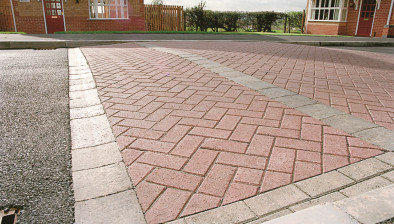250 jobs to go at Marshalls as Scottish factory closes

Building products supplier Marshalls is to cut around 250 jobs and close a factory in Carluke in response to “challenging trading conditions”.
In a trading update for the six months to 30 June 2023, the company, which had already cut 150 roles at the end of last year, said its board has “taken decisive action” by implementing a number of measures to align capacity and costs with demand, with a strong focus on managing cash.
This has resulted in the closure of the group’s factory in Carluke, a reduction in shifts and capacity in other facilities, and a restructuring of the Marshalls commercial team.
It added: “Regrettably, these changes are expected to result in a reduction of approximately 250 roles in addition to around 150 roles that were removed in the second half of 2022. These actions are expected to deliver annualised savings of approximately £9 million, with around 40% of this benefit being realised in 2023.
“The board has reduced its capital expenditure plans without impacting critical projects, is executing a programme of surplus land disposals, and has continued to focus on efficient working capital management in order to reduce the group’s net debt.
“We have balanced the need to reduce our capacity and cost base in the short term while retaining the flexibility to increase production when demand recovers. The group has latent capacity across all its businesses that can satisfy materially higher demand than that being experienced in 2023.”
Marshall said it expects to report group revenue for the six months ended 30 June 2023 of £354m (H1 2022: £348m), which is 2% higher than the corresponding period in 2022 and includes the contribution of four additional months of revenue from Marley. On a like-for-like basis, group revenue contracted by 13%. Adjusted profit before taxation for the half year is expected to be around £33m (H1 2022: £45m), subject to auditor review.
However, given that this result has been delivered against the “backdrop of challenging market conditions with persistent weakness in new build housing and private housing RMI, which are key end markets for the group”, the board said it anticipates the group’s performance in the second half will be below its previous expectations.
Marshall added: “The board remains confident that the group is well placed to deliver profitable long-term growth when market conditions improve and continues to focus on executing its key strategic initiatives.
“Whilst previously anticipating a recovery in market conditions in the second half of the year, the board is now of the view that an improvement in the second half performance is unlikely given the macro-economic backdrop.
“In addition, the board has chosen to reduce production volumes with a negative impact on operational efficiency in order to manage working capital. Taking these factors together, and in the absence of a recovery in demand in the group’s end markets, the board believes that the result in the second half will be markedly weaker than the first half, and consequently expects to deliver a result for the full year that is lower than its previous expectations.”





















